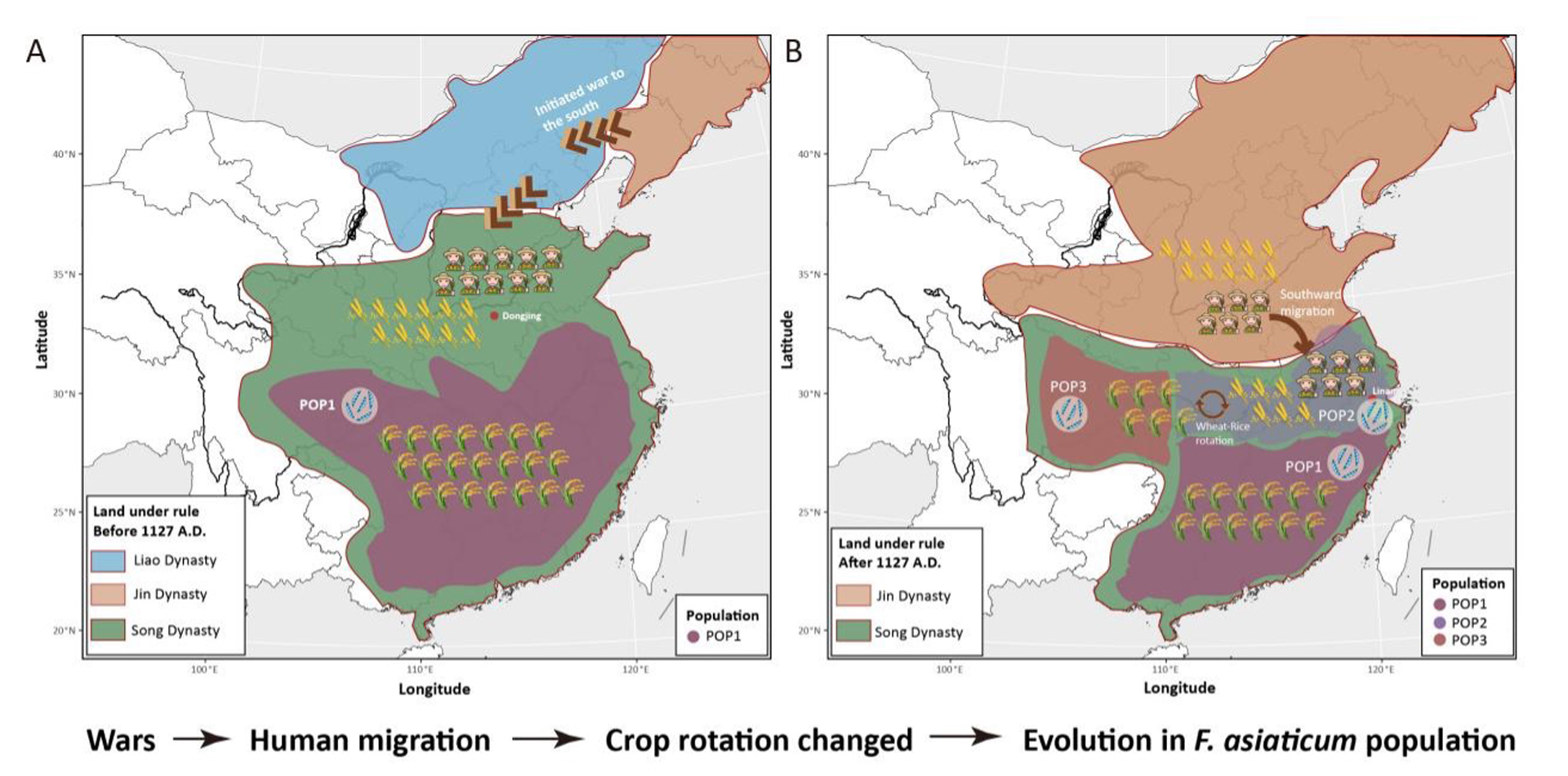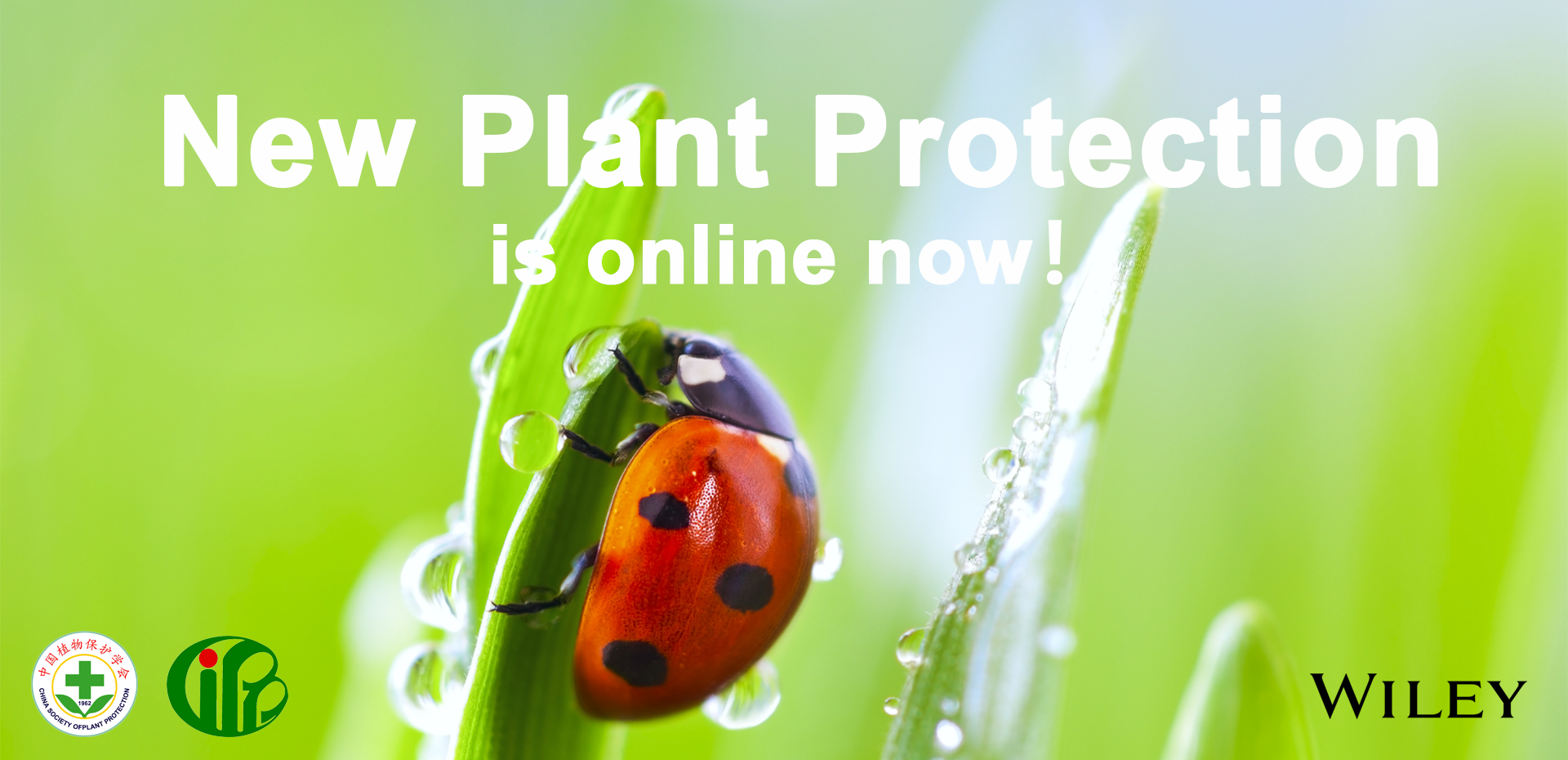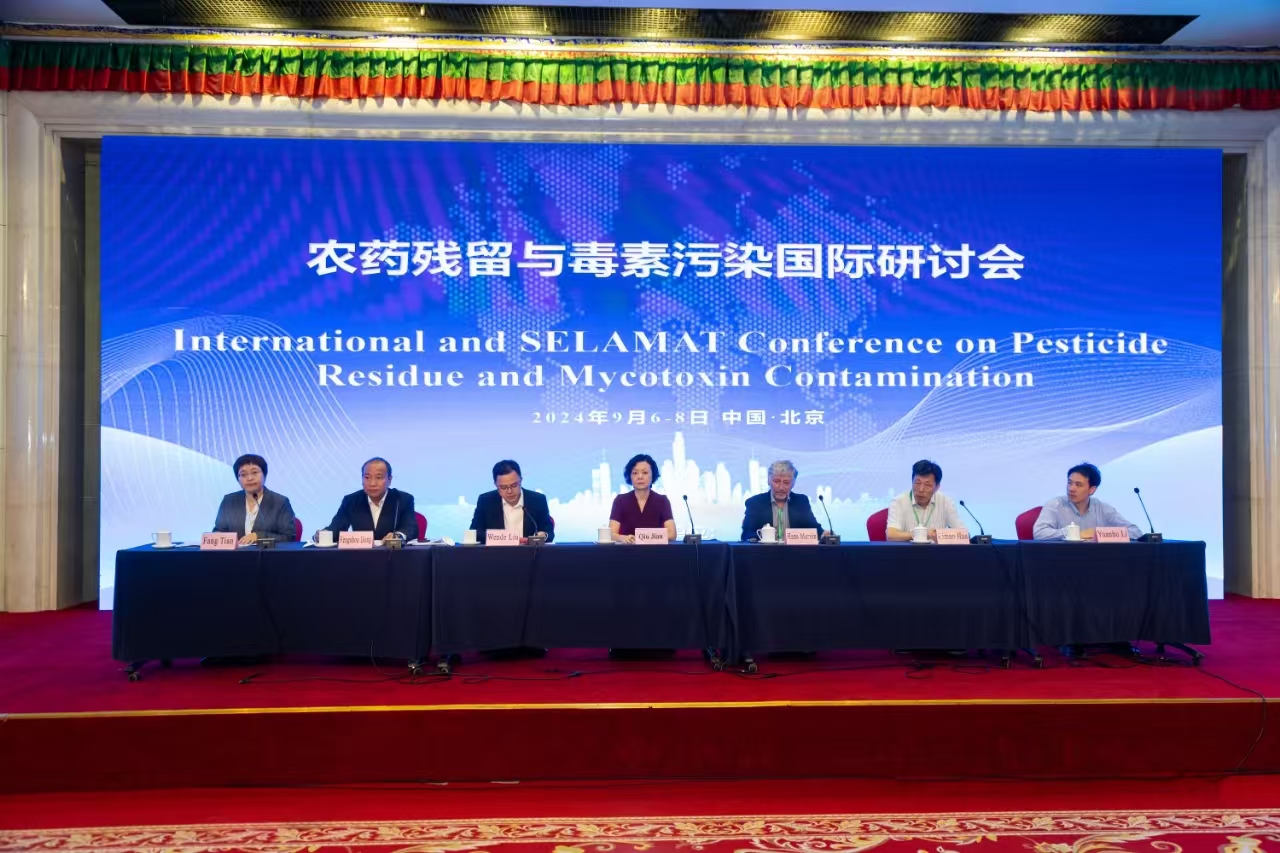IPPCAAS scientists revealed how historical human migrations and changes in agricultural practices have influenced the evolution and adaptation of the Fusarium head blight pathogen in wheat
The innovative team for the monitoring and control of fungal diseases in food crops at the Institute of Plant Protection, Chinese Academy of Agricultural Sciences (IPPCAAS), recently published a research paper titled "Adaptation of Fusarium Head Blight Pathogens to Changes in Agricultural Practices and Human Migration" in the journal Advanced Science . This study reveals that large-scale human migration in Chinese history led to changes in agricultural practices, which significantly influenced the evolution and ecological adaptation of the Fusarium pathogen.
The southern region of China is a major epidemic area for Fusarium head blight (FHB) in wheat, but the genetic structure and evolutionary history of the Fusarium population in this region remain unclear.
To understand the impact of human migration and changes in agricultural practices on crop pathogens, the authors conducted population genomic analysis with 245 representative strains from a collection of 4,427 field isolates of Fusarium asiaticum , the causal agent of FHB in Southern China. They identified three populations with distinct evolution trajectories over the last 10,000 years that could be correlated with historically documented changes in agricultural practices due to human migration caused by the Southern Expeditions during the Jin Dynasty. The gradual decrease of 3ADON-producing isolates from north to south along with the population structure and spore dispersal patterns showed the long-distance (>250 km) dispersal of F. asiaticum . These insights into population dynamics and evolutionary history of FHB pathogens were corroborated by a genome-wide analysis with strains originating from Japan, South America, and the USA, confirming the adaptation of FHB pathogens to cropping systems and human migration.
This research was supported by grants the National Key R&D Program of China (2022YFD1400100), the Key R&D Program of Xinjiang Uygur Autonomous Region (2022B02015-3), the National Natural Science Foundation of China (32172379), and the China Agriculture Research System (CARS-03).
More details can be found at the link below:
http://doi.org/10.1002/advs.202401899

-
 China-Laos Training Workshop on Integrated Management of Destructive Crop Pests and Diseases Successfully held in Laos
China-Laos Training Workshop on Integrated Management of Destructive Crop Pests and Diseases Successfully held in Laos -
 New Plant Protection: New challenge and new opportunity for plant protection
New Plant Protection: New challenge and new opportunity for plant protection -
 International and SELAMAT Conference on Pesticide Residue and Mycotoxin Contamination Held in Beijing
International and SELAMAT Conference on Pesticide Residue and Mycotoxin Contamination Held in Beijing -
 CAAS President Meets Chairman of ASEAN FAW Taskforce
CAAS President Meets Chairman of ASEAN FAW Taskforce
